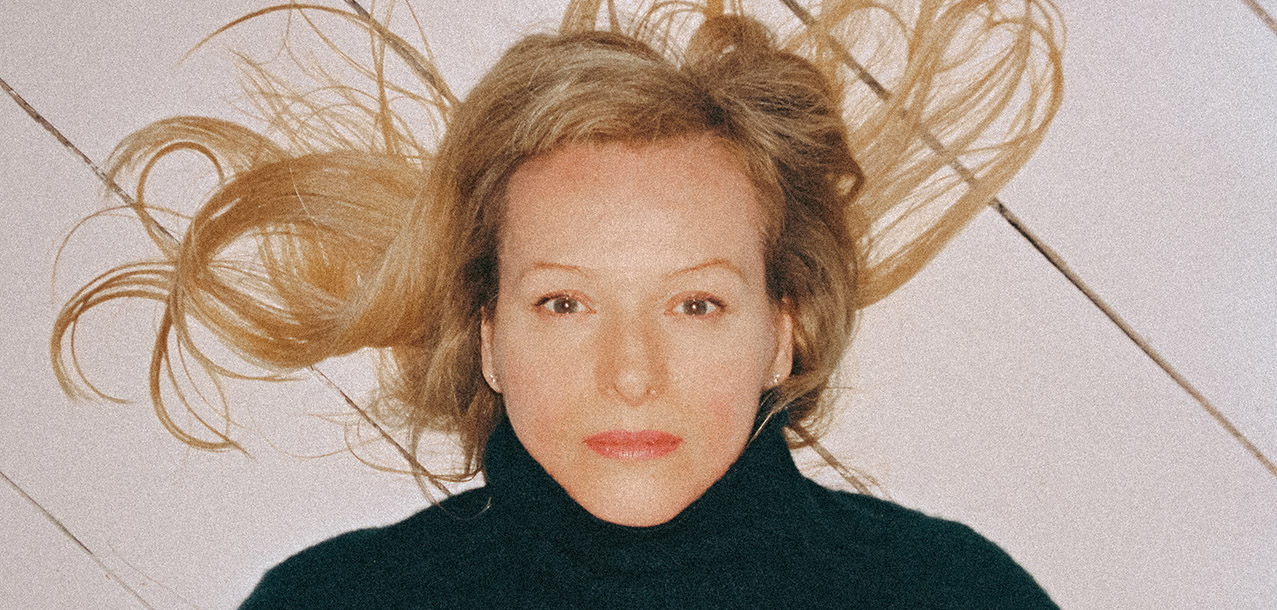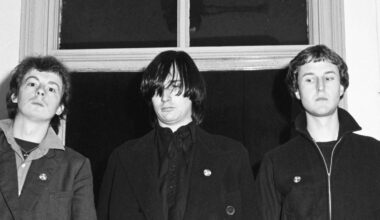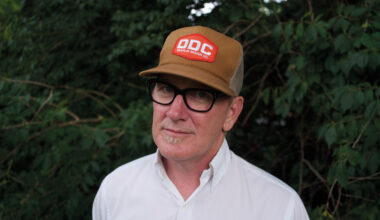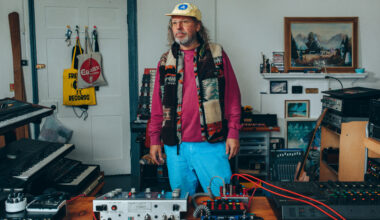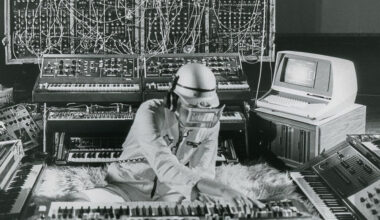Expansive, lyrical and shot through with ideas around consciousness and an interconnected world, the latest long-player from Dot Allison may just be her best work yet
Singer and songwriter Dot Allison has, by her own estimation, been going “further down the rabbit hole”. But don’t worry, rather than disappearing into a mysterious netherworld, she remains “inquisitive” and retains “a sense of wonder”. It’s just her way of trying to explain how she approached her remarkable new album, ‘Consciousology’. Much like her previous long-player, 2021’s ‘Heart-Shaped Scars’, it’s a conceptual collection that deals with “remaining rooted to nature”, but there’s a new element too.
“In lockdown, I became really interested in the study and location of consciousness,” she says. “It’s famously known as the hard problem. Is the mind located in the brain or not? And where is it? I was fascinated by this, so I wanted to make an album that allowed me to talk about it.”
An answer of sorts to the hard problem lies down the aforementioned rabbit hole, at least if it’s a burrow located in woodland. Canadian scientist Suzanne Simard’s research into the “woodwide web”, in which she showed how certain trees act as hubs for vast underground mycorrhizal networks, helped inspire one of the album’s standout tracks, ‘Mother Tree’.
“Trees communicate – they’re societal,” Allison says. “If a certain predator eats a tree, the tree puts out some sort of trauma signal via the network and then you’ll find, for about 100 yards around, the trees won’t be eaten. And it’s because they’ve released tannins, having had the warning about the predator. It’s so complex. This is us beginning to understand what we interrupt when we cut down the Caledonian Forest [the temperate woodland that once covered swathes of Scotland] and just plant pine trees. It’d be really weird if humans were the only thing in the universe that was truly conscious.”
Instead, Allison thinks we’re part of a “living quantum system” – judging by the abundance of ideas she has, drawing on science, philosophy and complexity theory, this clearly fills her with… well, wonder.
It’s perhaps telling that before she decamped for life as a musician, initially with One Dove, Allison was a biochemistry undergraduate. Her father, who she dedicates ‘Consciousology’ to along with her musician mother, is a botanist. Where other songwriters might reach for a novel or poem to help give songs shape, Allison’s approach is very different.
Both ‘Mother Tree’ and ‘Unchanged’ feature sound artist Dorit Chrysler on theremin. This was partly because the instrument works by generating electromagnetic fields.
“That made it the perfect instrument for me, working beyond the visible,” Allison explains.
‘220Hz’ is named for the electromagnetic frequency at which tree roots communicate. ‘Shyness Of Crowns’ references how trees “socially distance” at their highest points, seemingly as a way to ensure they share resources and maintain their health.
On ‘Double Rainbow’, Allison recorded the electrical activity of a Brachyglottis “Sunshine” plant placed on top of a Steinway. The result is the world’s first – and so far only – song to feature a botanical session player alongside Andy Bell (of Ride/GLOK fame) on guitar.
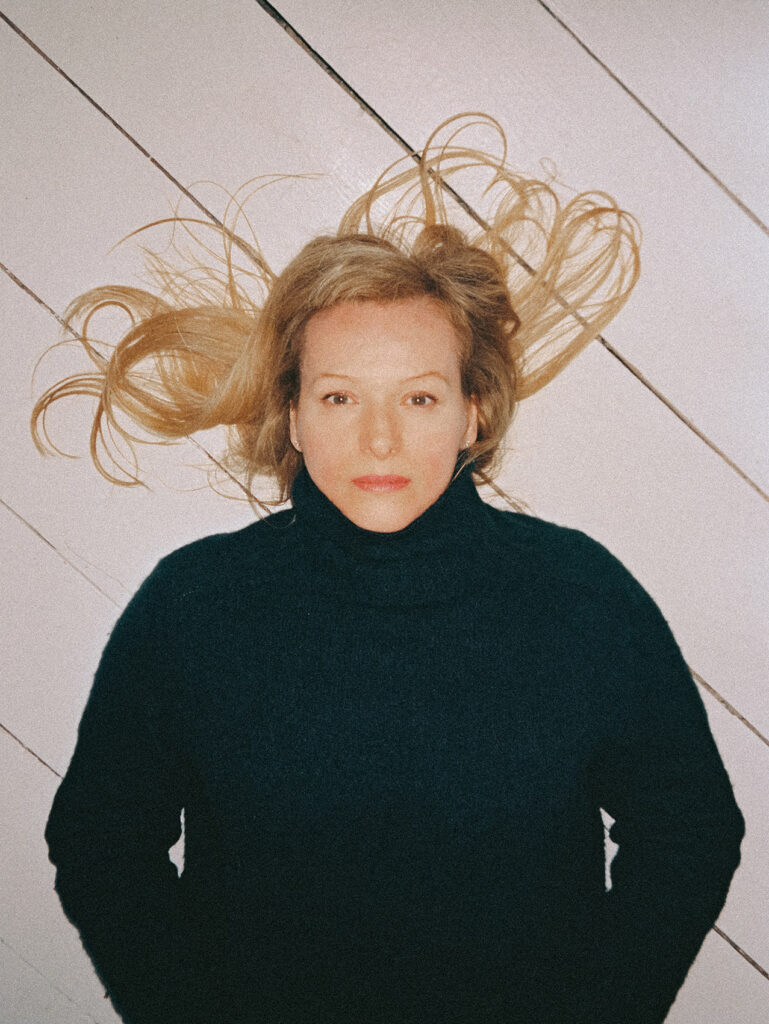
For all that it’s filled with notions that could trip into tricksiness, there’s an expansive warmth to ‘Consciousology’, an album where swirling electronica and organic sounds mingle unselfconsciously. The London Contemporary Orchestra, for example, perform arrangements by Hannah Peel on three tracks. In addition to more abstract cosmic themes, “love and loss” recur.
“I feel that the human condition is one of longing, because from the minute we are born, we’re longing for a union,” Allison muses. “We’ve had this union with our mother’s body and then there’s this, ‘Where do I go?’ kind of feeling. It’s all part of the human condition – we spend our lives looking to return home somehow.”
The fact that musicians such as Peel and Bell want to work with Allison says much about the esteem in which she’s held. From another angle, her co-producer and engineer Fiona Cruickshank is a rising star, someone with both her own distinctive sound and the technical chops to help Allison oversee complex sessions with classical players.
“I have got quite particular ideas about what I want,” Allison says. “It was just nice to have somebody that’s there as a partner, to share the burden, to jointly think about things and to be a brilliant sounding board.”
The confident reference to particular ideas is a reminder of Allison’s longevity as a musician. Early in her career, she was championed by the late Andrew Weatherall, who co-produced One Dove’s ‘Morning Dove White’ in 1993. ‘Heart-Shaped Scars’ was dedicated to Weatherall, while the delicate ‘Weeping Roses’ on ‘Consciousology’ references a mix tape the DJ/producer made for her, featuring folk singer Tim Hardin. She’s glad she got the chance to tell him how much he helped her.
“I recognised that Andrew had been a massive influence on me while he was still here,” she reveals.
One Dove broke up while recording an unreleased second album. In 1999, Allison released her debut solo album, ‘Afterglow’. Latterly, she has worked with the likes of Massive Attack, Paul Weller, Kevin Shields, Mick Harvey, and the late Scott Walker on ‘Soused’, the LP he made with Sunn O))).
For much of this century’s second decade she didn’t record, primarily because she was busy raising her children after returning from many years in London to live in her native Edinburgh.
“I thought I’d retired,” she says.
But the music still flowed, and she became increasingly interested in the “craft of songwriting”.
Arguably, her absence has only added to her mystique – and there is definitely something mysterious about Dot Allison. While she’s friendly and communicates clearly how she thinks about her work, there’s nevertheless a sense of talking to someone whose creativity sometimes surprises even her. It would be fascinating to see her new songs played live, but that seems rather unlikely anytime soon.
“I’ve always been gripped with fear,” she says of performance.
She adds that she may consider working live in a trio. It’s likely, though, that these would be acoustic gigs rather than electronic. They may even feature the ukulele – she loves the sound of its strings when they’re plucked, although she says she’s “not a strummer”– and reflect a love of folk music rekindled by her move back up north to Scotland.
Then again, seeing electronic and folk music as separate is perhaps misleading. Allison is a fan of American electronic pioneer and composer Laurie Spiegel.
“Laurie once said she saw electronic music as folk music,” Allison says. “That’s really interesting. Because I suppose folk music is music of the people, so it’s whatever the people are expressing.”
‘Consciousology’ is out on Sonic Cathedral
